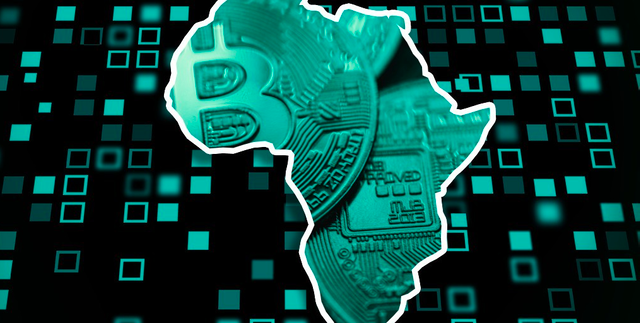The world economy is projected to maintain a growth rate of 3.2 percent in 2024 and 2025, mirroring the pace seen in 2023. The global financial sector is continually evolving, presenting a myriad of opportunities for various regions worldwide. Growth in advanced economies is expected to increase slightly, from 1.6 percent in 2023 to 1.7 percent in 2024 and 1.8 percent in 2025. African markets, in particular, have seen a rise in investment and growth due to a number of these global financial trends. We look into how these trends are creating golden opportunities in African markets, focusing on emerging sectors, and foreign investments.
Foreign Direct Investment (FDI) in Africa is on the rise, driven by improved political stability, economic reforms, and growing markets. According to the World Investment Report 2023 by UNCTAD, foreign direct investment (FDI) in Africa dropped to $45 billion in 2022, down from a record $80 billion in 2021, and remained nearly unchanged in 2023 at an estimated $48 billion. This represented 3.5% of global FDI. However, the number of greenfield project announcements increased by 39% to 766.
Sustainable Finance
Sustainable finance, which integrates environmental, social, and governance (ESG) considerations into financial products and investments, is gaining traction globally. This trend is driven by increasing regulatory demands and stakeholder expectations for climate-related commitments from companies.
In 2021, global green bond and loan issuances, along with equity funding for green projects, reached $540.6 billion, marking a 100-fold increase since 2012. Sustainable assets under management grew from $30.7 trillion in 2018 to $35.3 trillion in 2020, with projections to exceed $50 trillion by 2025. This growth creates significant opportunities in African markets. African countries can attract investments in green infrastructure, renewable energy, and climate-resilient projects. This influx of capital can drive economic growth, create jobs, and enhance social value while addressing environmental challenges. African markets, with their vast potential for green development, are well-positioned to benefit from the global shift towards sustainability in finance.
Technology
The technology sector in Africa is booming, driven by increasing internet penetration, mobile phone usage, and a young, tech-savvy population. Key areas of growth include fintech, retailtech/e-commerce, agritech, etc. The technology sector has attracted so many foreign investments. There is a growing interest from private equity and venture capital firms in African startups and SMEs. These investors are actively funding high-growth sectors, providing much-needed capital and expertise.
Big data and automation are enabling African businesses to optimize operations and improve decision-making. Leveraging data analytics, companies now better understand customer behavior, tailor services, and improve operational efficiency. Automation, through technologies like robotic process automation (RPA), is allowing businesses to streamline repetitive tasks, freeing up resources to focus on strategic initiatives and innovation.
With the rise in digital penetration, cybersecurity has become more important. African technology firms and startups are adopting advanced authentication methods to secure and protect customer data. This not only builds trust among users but also mitigates the risk of cyberattacks, ensuring a safer digital environment
Improved customer experience through digital services is another key global trend creating opportunities in African markets. African fintech companies are utilizing AI and machine learning to offer personalized products and services. This includes real-time payments, financial management tools, competitive lending rates, etc. Thus, meeting the growing demand for convenient and user-friendly solutions.
Embedded finance—the integration of financial services into non-financial platforms—is gaining traction. This trend allows businesses across various sectors to offer financial products directly to their customers, enhancing convenience and accessibility. In Africa, embedded finance has the potential to support SMEs by providing easier access to credit and financial services, thereby driving economic growth.
Agriculture and Renewable Energy
With the global shift towards sustainable energy, Africa’s vast renewable energy resources are becoming increasingly attractive. Countries like Kenya, South Africa, and Morocco are leading the way in harnessing solar, wind, and geothermal energy. Investments in these sectors are not only providing clean energy but also creating jobs and boosting economic growth.
Africa’s agricultural potential is immense, with over 60% of the world’s arable land. Modernizing agriculture through technology and sustainable practices is attracting foreign investments. Agribusiness is poised to become a significant driver of economic growth, providing opportunities for both small-scale farmers and large agribusiness firms.
According to Statista, Africa’s population is projected to double by 2050, reaching 2.5 billion. This population growth, coupled with rising urbanization and a burgeoning middle class, is expanding the consumer base. Markets such as retail, healthcare, and education are experiencing significant growth as demand for goods and services increases.
Despite global economic uncertainties, Africa’s economic outlook remains positive. The African Development Bank (AfDB) projects that Africa’s GDP will grow by 3.8% and 4.2% in 2024 and 2025 respectively. Key drivers include investments in infrastructure, increased commodity prices, and a diversified economic base.
Challenges such as political instability, corruption, and inadequate infrastructure remain. However, ongoing reforms and increased investment in infrastructure and governance are addressing these issues, creating a more conducive environment for growth.


